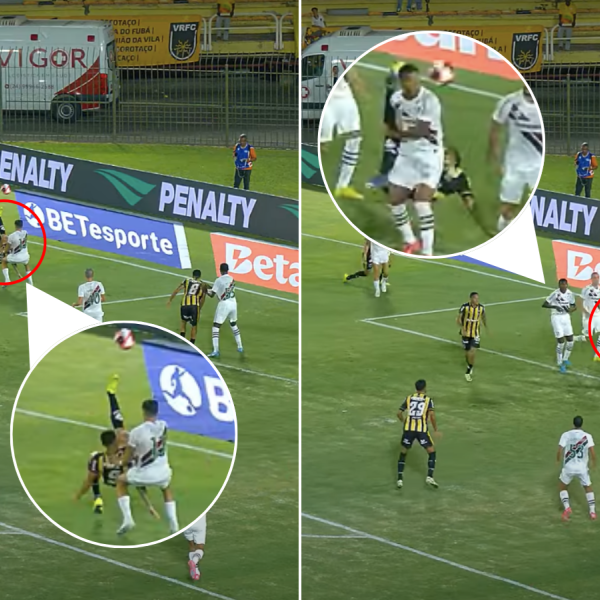Yellow cards — the fine line between professional or consistent fouls and a sending off — are a part of almost every match, especially at the World Cup when the stakes are highest. Accruing yellow cards will get a player suspended, leading to the question: When are yellow cards wiped in World Cup 2022?
Two yellow cards in a single match result in a red card. Likewise, two yellow cards in a World Cup result in a one-match suspension. There were 219 yellow cards at the 2018 World Cup, an average of 3.42 per match. Because it’s easy for a player to pick up two yellow cards if the team advances past the group stage, FIFA wipes out yellow cards at a certain point in the tournament, allowing leniency and preventing key players from missing more important matches.
When Are Yellow Cards Wiped In World Cup 2022?
So, when are yellow cards wiped in World Cup 2022? After the quarterfinal round and before the semifinals.
But it wasn’t always this way.
In 2002, Germany captain Michael Ballack picked up a yellow card in the semifinal against South Korea, his second of the knockout round thereby earning a suspension for the final. Without his towering presence in midfield, Germany lost 2-0 to Brazil in the final.
FIFA used to wipe out yellow cards after the initial group stage. This made a lot of sense, as players got a reset of sorts heading into the knockout rounds. However, FIFA wanted to make sure key players would not be suspended for the final, so instead of using a system that helps most teams, it adopted a system that helps the best teams.
FIFA first started wiping out yellow cards after the quarterfinal round in the 2010 World Cup. By wiping yellow cards out ahead of the semifinals, only a red card would prevent a player from missing the final. The rules are now the same for the Champions League.
In 2014, Brazilian captain Thiago Silva received his second yellow card in the quarterfinals against Colombia. After picking up his first yellow in his second match against Mexico in the group stage, Silva was suspended for the semifinal against Germany. You may remember how that one turned out for Brazil. (Fun fact: Both Thiago Silva and Ballack scored in the match in which they earned their suspensions.)
There are advantages and disadvantages to both systems. When yellow cards wipe out after the knockout rounds, 16 teams benefit. When yellow cards wipe out after the quarterfinals, four teams benefit. Wiping out yellow cards early means teams with less depth are more protected in the early stages of the knockout rounds. Wiping out yellow cards late means teams in position to win it all are more protected, thus ensuring the two teams in the final have all players available (barring a red card).
Regardless of when yellow cards are wiped out in the World Cup, FIFA makes one thing clear: Don’t commit fouls or you might be suspended. So if you don’t want to be scrambling to find out when are yellow cards wiped in World Cup 2022, just play nicely.
Editor’s Note: This article has been adapted from the original version, which ran in 2018.







